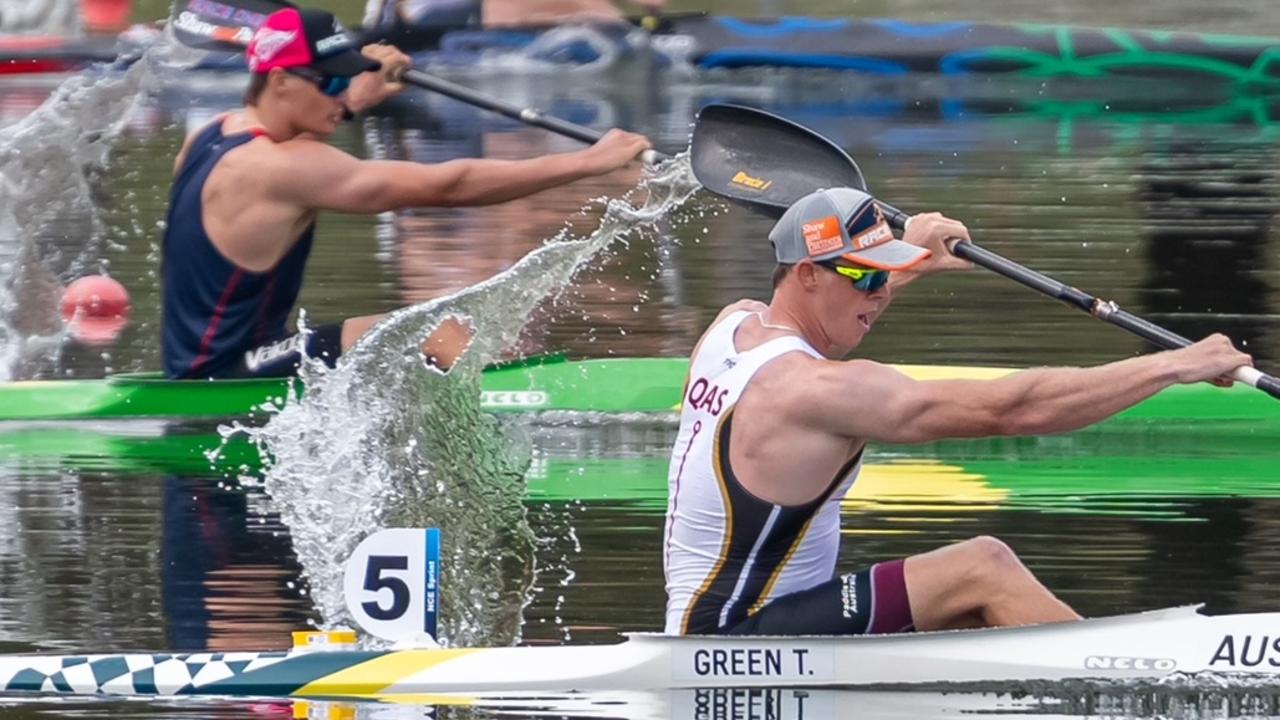Shocking findings revealed in Sport Integrity Australia report into women’s gymnastics
Shocking findings, horrific accounts of abuse and harrowing details of the years of abuse young gymnasts suffered at the hands of their coaches have been released. Graphic content warning.
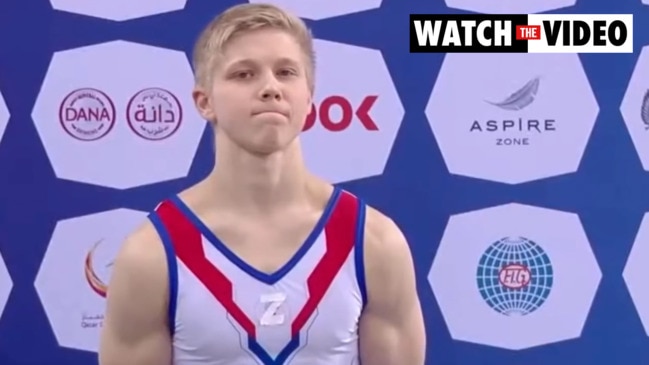
Olympics
Don't miss out on the headlines from Olympics. Followed categories will be added to My News.
Sport Integrity Australia has confirmed young gymnasts were subjected to years of abusive coaches after releasing the findings of their independent investigation into the Women’s Artistic Gymnastics Program.
The review examined the cultural issues at the Western Australia based program from 1987 to 2016 and included interviews with over 92 participants including former athletes, coaches, administrators and 71 written submissions and 15,000 pages worth of documents.
SIA chief executive David Sharpe released the report on Wednesday praising the bravery of the athletes who shared their stories of abusive coaches with the report finding many were subjected to levels of abuse or harm while in the WAIS program.
“This includes things such as verbal and physical abuse, unnecessary skinfold testing, weight-shaming, the expectation to train and compete with injuries, and extreme training loads,” the report said.
Stream Over 50 Sports Live & On-Demand with Kayo. New to Kayo? Try 14-Days Free Now >
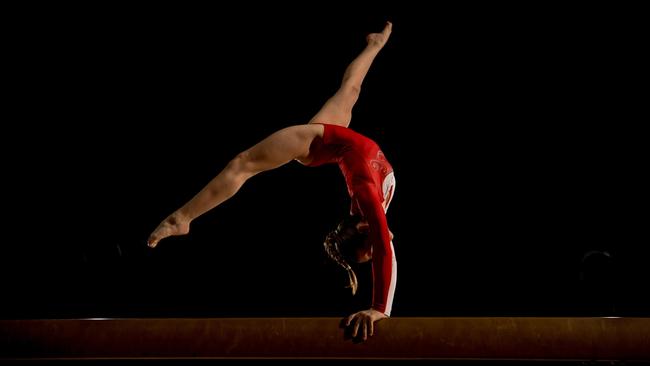
“The courage exhibited by these gymnasts in telling their stories will result in meaningful change ensuring greater protection of future athletes,” Sharpe said.
“Speaking up about abuse, harm, or any wrongdoing in sport can be difficult. But the athletes’ voices are now louder than ever and it is their voices that ensure we all better understand the issues.
“Sharing these experiences allows sporting bodies and government agencies like Sport Integrity Australia to develop processes, policies and education programs to significantly reduce the likelihood of them occurring in the future.”
SIA referred seven incidents to police for potential criminal investigation relating to sexual or physical abuse claims, but “none progressed to investigation or charges and have all been closed.”
Complainants revealed a culture of screaming, belittling and verbal abuse from coaches where athletes quickly learnt it was easier to cop the barrage of abuse than dare question or report behaviour for fear it would only get worse.
The mantra that “coaches have to be more scary to make you fear to overcome fear” was prevalent in the sport.
“You got dropped off, you walked through the doors and pretty much you were straight in the tunnel and that was the point where it was going to be on, you know, fear of basically being yelled at. That was my daily fear and reality. The belittling,” one participant said.
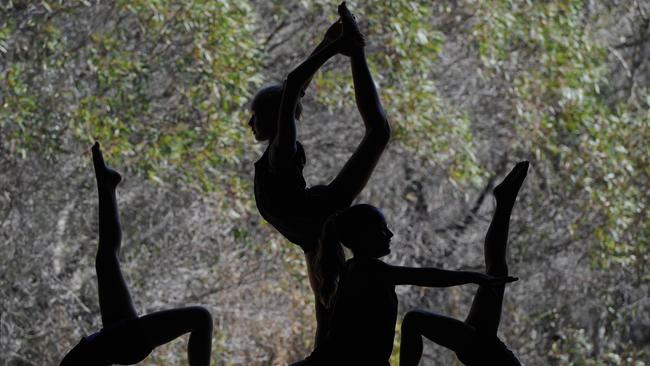
“If you had a little whinge to your parents about something, you know, and then if they then went and relayed that to the coaches, you’d spend the next two weeks being given the cold shoulder from the coaches or you would be, you know, “Oh, are you going to cry to your parents again? You’re a baby.” And you would cop it so much if you spoke up from the coaches that we just learnt it was easier to shut up and just get on with it,” reported another complainant.
While the report didn’t investigate specific claims, or seek to take action against individuals, it focused on gathering an understanding of the systemic issues plaguing the sport to improve the culture for young athletes moving forward.
“Managing historical allegations of abuse in sport is inherently complex, due to the passing of time, the reliance on outdated policies, and jurisdiction issues that arise when respondents are no longer involved in sport,” Sharpe said.
“The Terms of Reference for this Review provided a safe way to hear and document participants’ experiences and learn from them, rather than a formal complaint handling process that would put gymnasts through investigations and hearings.
“Sport Integrity Australia’s focus now is on working with all sporting organisations, including WAIS, to ensure that their policies protect the athletes and participants of today and importantly, that complaints are handled independently.”
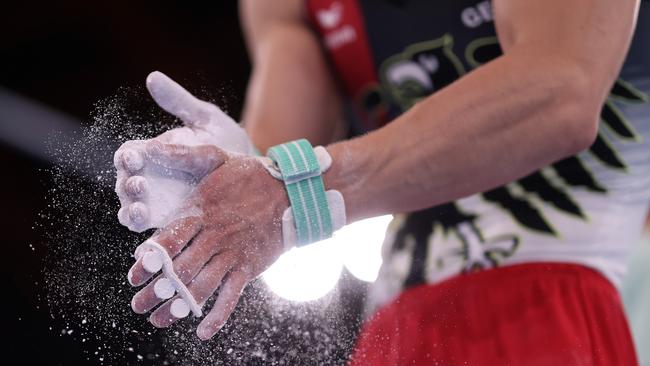
One gymnast accused her coach and putting their hands around her neck and shaking her for putting on weight.
“[The coach] was yelling me, how come your weight is up […] that’s when [they put their] hands around my neck and shook me. I was petrified. Absolutely petrified. […],” the complainant said.
“There was no more discussion around it, I didn’t tell me parents. So, in retrospect I can see how I was protecting my abuser and it’s only, sort of just recently, that all of this is sort of coming up and me realising “wow”.”
Another gymnast was smacked for having a biscuit in her locker.
“Doing knee splits I remember being pushed that hard, bawling your eyes out then being told to stop, you are being stupid, you are being pathetic, everyone is laughing at you,” they said.
“I was smacked by [a coach] across my legs because I had a [...] biscuit in my locker and an older girl dobbed me in, I got in a lot of trouble, I had to do dish rocks, on my back in a bowl position rocking back and forth for approximately an hour and a half.”
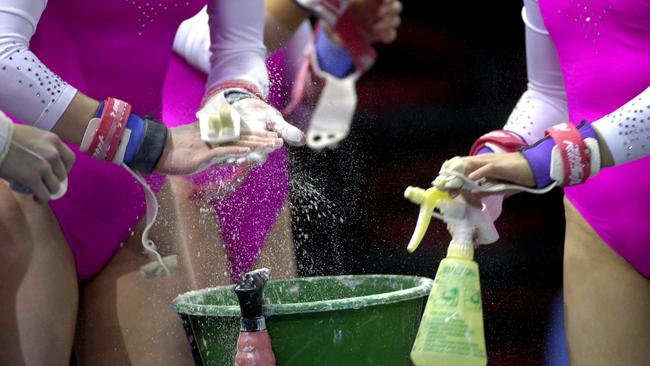
Athletes revealed skin-folding testing occurred “at least once every two weeks” and for a long time they were forced to live by the 1989/1992 national selection policy that their skinfold measurement needed to be below the maximum of 40 or 42mm measured across seven body zones.
“Some gymnasts reported they were required to have twice-daily weigh-ins. They took a significant toll on many of the gymnasts, some of whom to this day – as adults – still weigh themselves several times per day, and others Sport Integrity Australia spoke to continue to receive treatment for eating disorders.”
Athletes said the restrictions around diet - often starting with weigh-ins during their primary school years - had a massive impact on their lives.
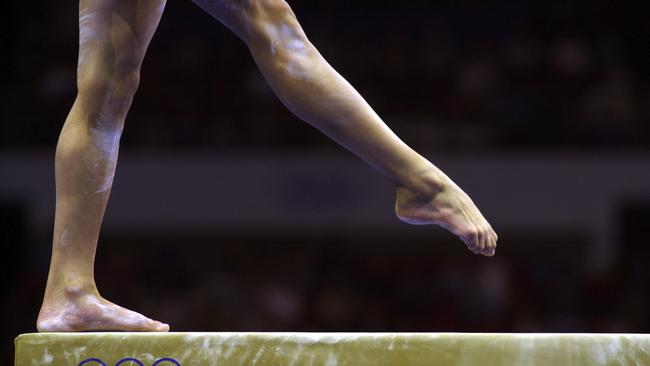
The obsessive attitude towards food, particularly during away competitions, led to punishments if they were caught sneaking snacks.
“The air hostesses or hosts would like try and sneak us a little snack kind of Mars bars and if we got caught with those we’d be punished,” one said. We obviously couldn’t eat them. And then they would punish us next day physically with like physical training exercises, I mean. You know, we would do hand stands and cartwheels for food like little bloody monkeys.”
The form of training, stretching and workload with injuries has also come under fierce scrutiny with athletes reporting major issues upon retirement including one athlete requiring a double hip replacement in her 20s and an addiction to pain medication.
“I had arthritis start on my back and shoulder in my late 20s. The pain was so bad I started taking pain relief and it got to the point where my doctor had confirmed I need a double hip replacement so early because of the gymnastics. He said all my old stretching positions are probably how it started. Gymnastics led me to a 15-year addiction to opiates, I was taking morphine, fentanyl, endone oxycodone, panadine forte.”
WAIS chair Neil McLean apologised on behalf of the Board and the Institute more broadly, as they promised to adopt the recommendations from the review which included more parental involvement and transparency, better education and oversight of coaches, a complaints handling process and more focus on athlete welfare particularly around young children, eating disorders and aftercare.
“To the women who reported such distressing experiences, we have listened to you. To those who experienced abuse and harm we apologise. We are sorry that your experiences were painful rather than enjoyable and we apologise for the elements of the WAIS program that failed you,” McLean said in a statement.
“Sport is meant to be a healthy and enjoyable experience and we are sorry that this was clearly not the experience for some who participated in our gymnastics program.
“It is vital for everyone involved in our elite sporting community, including the gymnasts who raised these allegations, to know that we accept the report’s recommendations.
“Prior to the report being commissioned, WAIS already developed and implemented policies that go some way to addressing the areas for improvement identified in the recommendations.
“We believe we can take some confidence from this review that our elite sporting programs reflect the modern sporting environment and deliver best practice athlete care. However, we can always improve, and we welcome the recommendations made in the report.”
Originally published as Shocking findings revealed in Sport Integrity Australia report into women’s gymnastics

